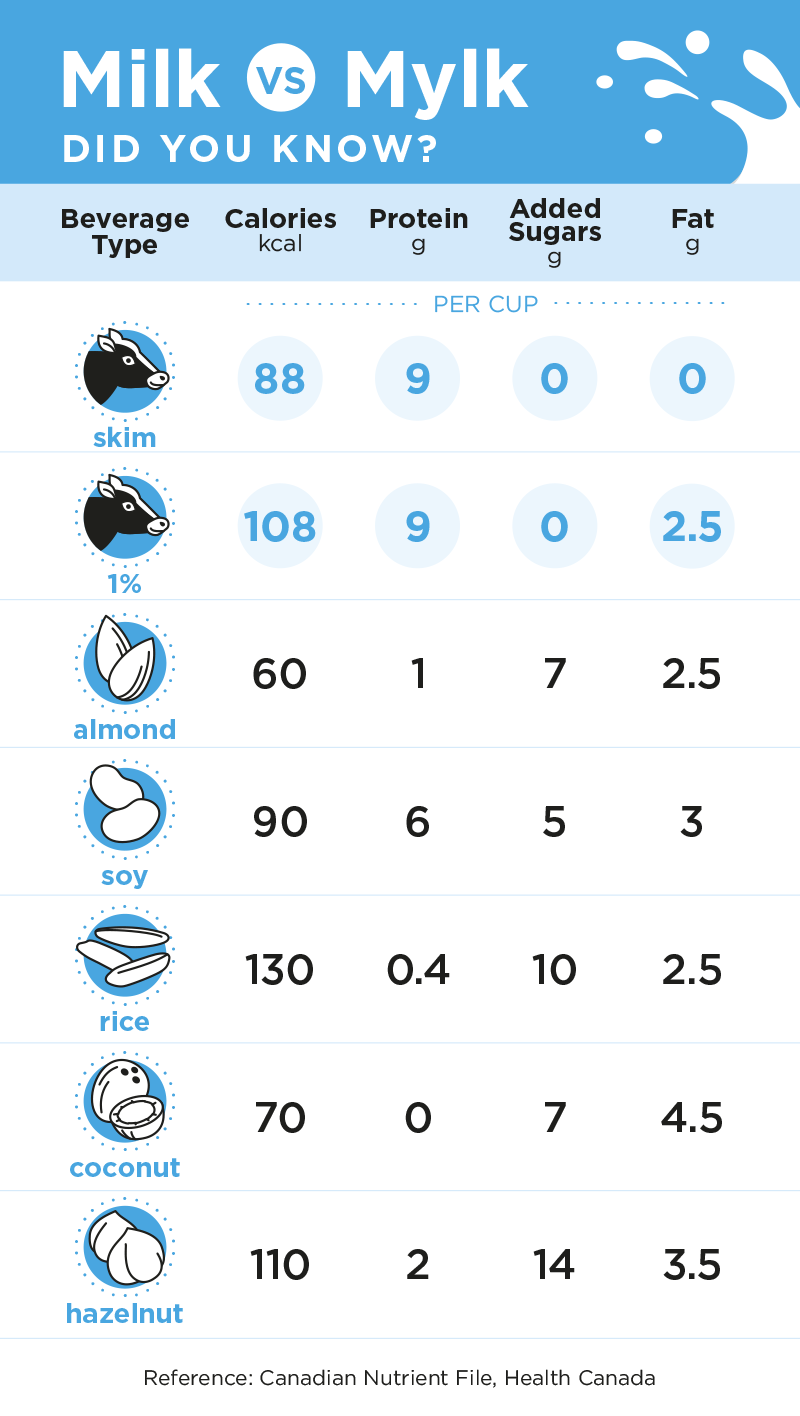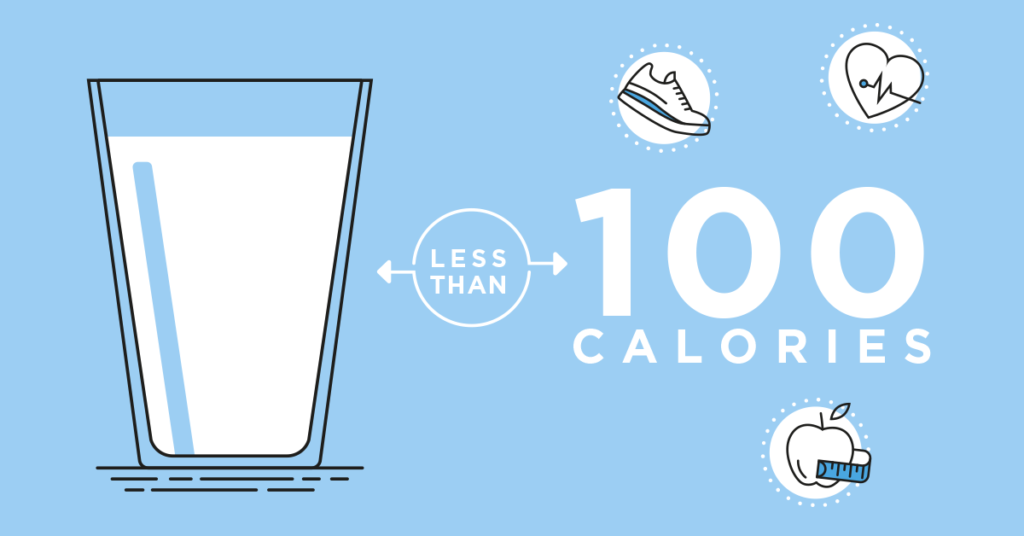Think again!
Did you know that 2 cups of skim milk make up less than 10% of the average adult woman’s daily recommended calories? And that it contains no fat?
Milk does not cause weight gain.
Nutrients in Milk
It is common knowledge that milk is a great source of calcium, but did you know that it also contains
- Magnesium
- Potassium
- Vitamin A and
- Vitamin D
Is milk healthy? Yes. Is milk bad for you? No.
These nutrients in milk occur naturally, with the exception of vitamin D, which is added. Vitamin A is naturally found in milk, and restored to skim milk, as this nutrient is skimmed off with the fat. Health Canada lists the above as “nutrients of concern” since many Canadians don’t get enough of them.

Milk is a great source of protein, and it contains no added sugar.
Alternatives?
Other than soy beverage, alternative beverages have negligible protein content—and most of the commonly used products also contain a high amount of added sugar.
In order to make a beverage suitable as a substitute for milk it must be fortified with at least 6 additional vitamins and minerals. Almond, coconut, and all the other plant-based beverages are a source of other nutrients only if the product is fortified.
What people don’t know is that unless homemade, these alternate beverages tend be quite highly processed which means it’s hard to know how well their added nutrients are absorbed. It’s also interesting to note that 1 cup of almond beverage contains only 3 whole almonds, and most of those nutrient-dense nuts are strained out of the product during processing. You don’t get much calcium either, unless the product has been fortified.
With less than 100 calories in a glass of skim milk, you get protein plus numerous vitamins and minerals—all well absorbed. We’ll raise a cup of milk (or two) to that!
Have more questions about milk? Click on the links below for more info.
What Diet Should You Follow in 2017?



